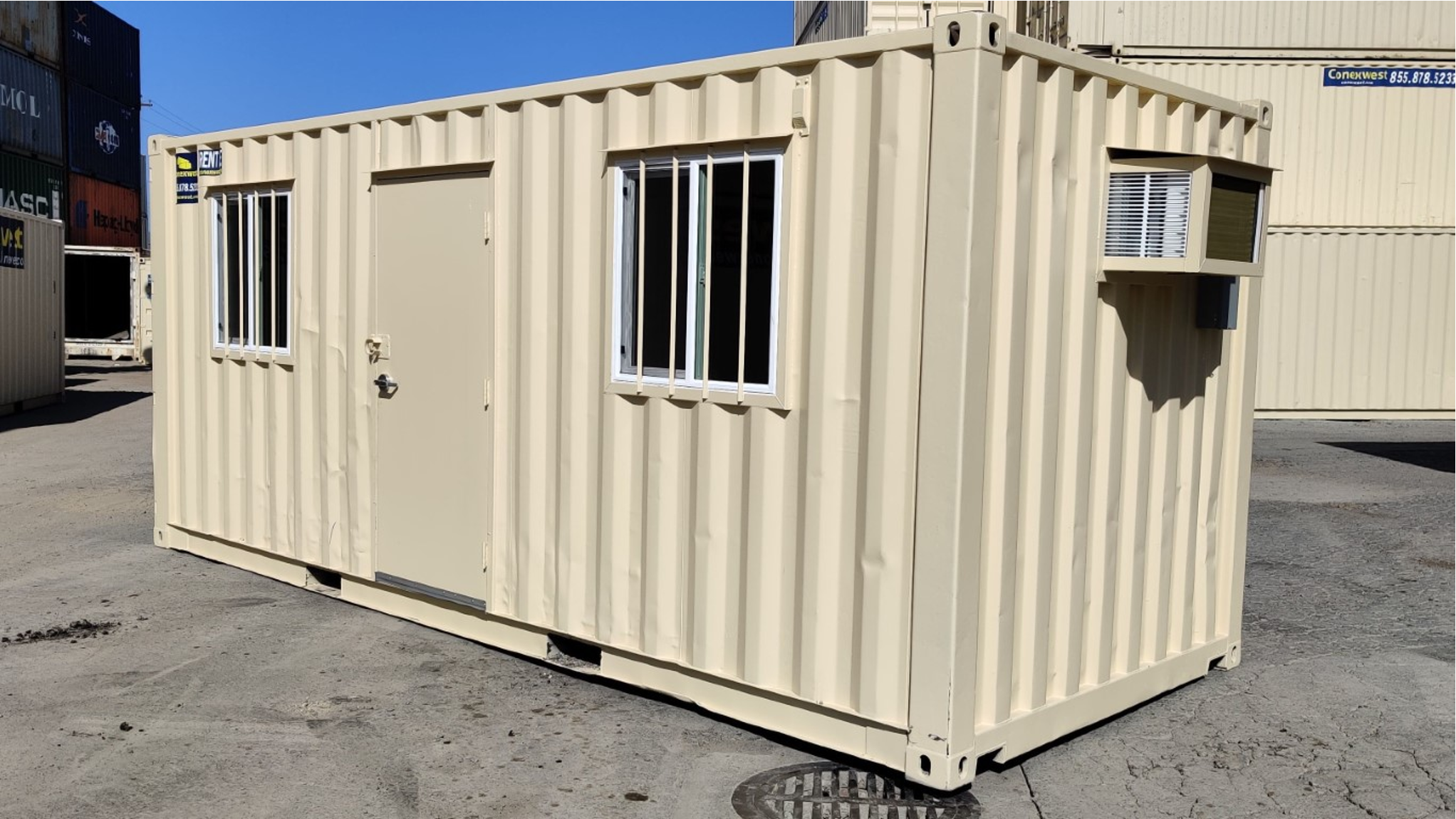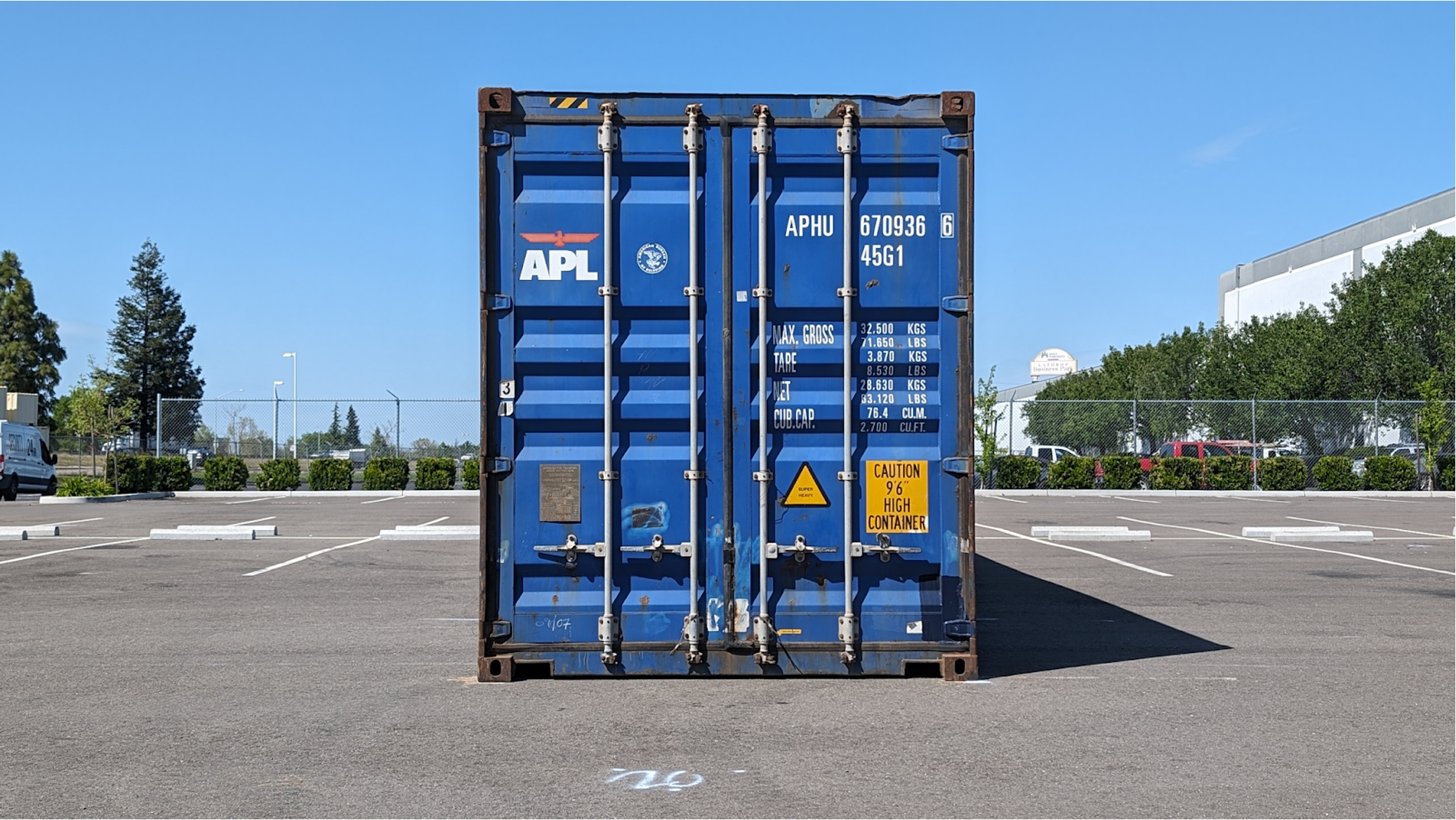Alabama Shipping Container Zoning Laws, Permits & Building Code Requirements Guide
Get a quoteAlabama Shipping Container Zoning Law, Permit & Building Code Guide
Key Takeaways
- Check Alabama state and local zoning laws before placing a shipping container on your property.
- Obtain all necessary permits including building, electrical, and plumbing permits.
- Consult with local authorities to comply with zoning restrictions and permit requirements.
- Conexwest provides permitting advice and a range of shipping containers with delivery and customization options.
Shipping Container Zoning Laws, Permits, & Building Code Requirements In Alabama
Zoning Laws
- Land Use Designation: Zoning laws classify land as residential, commercial, and industrial. Shipping containers must comply with regulations governing the designated use of the property. For example, using a container as a dwelling typically requires a residential zoning designation.
- Setback Requirements: Most municipalities enforce setback regulations that dictate how far structures must be from property lines so that containers do not obstruct neighboring properties or violate local ordinances.
- Temporary vs. Permanent Structures: Zoning requirements are often based on the intended use of a shipping container and temporary structures may have fewer restrictions than permanent installations.
- Height and Size Restrictions: Local zoning rules typically restrict the size and height of shipping containers allowed on properties for safety and the appearance of the neighborhood.
Permits
- Building Permits: Almost all shipping container constructions require a building permit for compliance with safety standards set by the International Building Code (IBC) or International Residential Code (IRC).
- Portable Storage Structure Permit: If you intend to use a shipping container for storage on residential property, you may require a permit. For example, in Huntsville, a portable storage structure may be placed on a residential lot without an active building permit, so long as it meets size specifications, setback limitations, and other requirements.
- Homeowner Association (HOA) Approval: If the property falls under HOA jurisdiction, additional approvals may be necessary to comply with community standards and regulations governing neighborhood appearance and container usage.
Building Code Requirements
- Compliance with IBC/IRC: Shipping container homes in Alabama must adhere to the same building codes as conventional homes. This includes regulations on structural integrity, fire safety measures, electrical installations, plumbing systems, and insulation standards.
- Foundation Requirements: Depending on the intended use (temporary or permanent), foundation requirements may vary. Permanent structures typically require a stronger foundation than temporary structures.
- Utilities and Connections: Utility connections for electricity, water, and sewage must comply with local codes and may require additional permits or inspections.
Conexwest, a leader in shipping and storage solutions based in Northern California, offers new, used, and refurbished containers from 10ft to 45ft, with fast delivery within 3-7 days and container fabrication options like adding shelves and locks. We serve over 10,000 customers nationwide, including prestigious clients like the U.S. Navy and Google. As an ISO 9001 and AWS-certified company, we ensure top quality and competitive pricing. |
Tips For Complying With Alabama’s Regulations

If you are using a container as an office or a living space, it needs to have proper ventilation
- Consult with Local Authorities: Before commencing your project, contact your local planning office or zoning officials. They can provide insight into the permits you’ll need and any recent changes in local regulations.
- Consider Temporary Structures: Consider using the shipping container as a temporary structure—initially. This may simplify the permitting process and allow for greater flexibility in its usage.
- Engage Professionals: Work with reliable shipping container providers like us to receive guidance about complying with local zoning laws and container use regulations.
- Design for Aesthetics: Consider how your shipping container will fit in with the neighborhood aesthetic. A well-designed exterior can help lower community resistance to a container on your property.
- Document Everything: Keep detailed records of all communications with local authorities, permits obtained, and inspections completed. This documentation can be invaluable if disputes arise or if you need to appeal any decisions.
- Stay Updated on Changes: Regularly check for updates on zoning laws and building codes, as they can change frequently.
Choose Conexwest For Your Shipping Container Needs

Conexwest’s used containers are thoroughly checked to verify if they need our quality standards
Why Choose Conexwest
- Extensive Inventory and Options: We have a large selection of shipping containers, including new and used options including standard, high cube, reefer, and mobile office containers.
- Customization Options: Need additional doors, windows, insulation, or electrical packages? Our team can transform containers into living spaces, trade show booths, pop-up shops, offices, and more.
- Expert Guidance on Regulations: We can help you understand and comply with Alabama zoning laws and building codes for shipping containers.
- Transparent Pricing: We believe in upfront and transparent pricing with no hidden fees. With us, you’ll know exactly what you’re paying for. Our customer service team can provide you with quotes and answer any questions you may have about pricing or products.
- Warranty Coverage: We stand behind our products with warranty coverage—10 years for new ISO shipping containers and 5 years for used cargo-worthy units.
Frequently Asked Questions (FAQs)
- Can I place a shipping container on my residential property in Alabama?
This depends on your local zoning laws. Always check with your local zoning office to confirm if shipping containers are allowed in your area.
- What are the costs associated with obtaining permits?
Permitting costs vary but typically include application fees, inspection fees, and any fees for revisions or additional information. Budget for these costs in advance.
- Are there specific building codes for modified shipping containers?
Yes, modified shipping containers must meet the same building codes as conventional structures—for structural integrity, fire safety, electrical, and plumbing systems.
- Can I use a shipping container for commercial purposes?
Commercial and industrial zones are generally more lenient about container use, but it’s important that you confirm the specifics with the local authorities. Shipping containers can be used for storage, office space, or even as pop-up shops in these zones.
- What additional services does Conexwest provide?
In addition to selling and renting shipping containers, we provide structural engineering support, repair services for damaged containers, transportation logistics for moving containers, and depot services.
